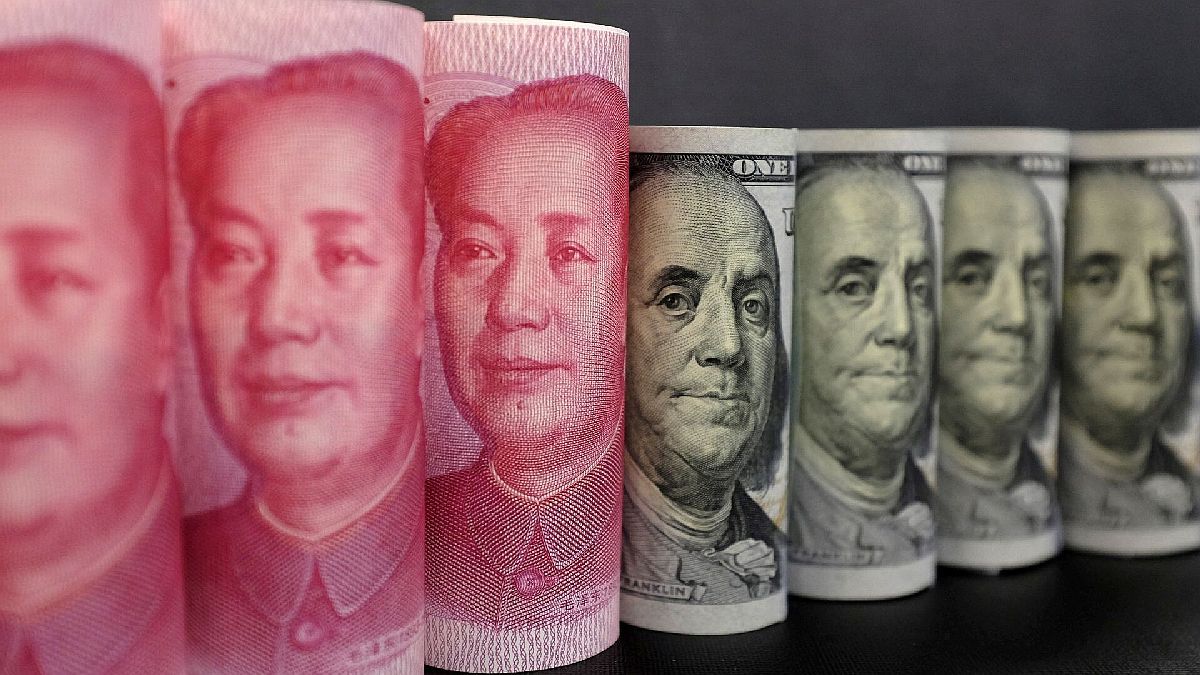Last week, the National Securities Commission (CNV) announced that it was analyzing the possibility of enabling the negotiation of financial instruments with yuan in the local market and, this Thursday, General Resolution 965 was approved, which readjusts the provisions and requirements for the purchase and sale of fixed-income securities, nominated and payable in dollars issued by the Argentine Republic under local and/or foreign law in order to comply with the aforementioned objective.
This way, the possibility of liquidating public titles in yuan is enabled. This means that you can buy bonds in pesos and sell them in RMB yuan. “In this way, it contributes to the possibility that the participants of the Argentine capital market can operate different financial instruments denominated in yuan RMB jointly, obtaining synthetic financial products, isolating and delimiting the risks to which they wish to be exposed”, reported the stock market regulator. And the contribution of guarantees to the RMB yuan futures market with negotiable securities quoted in that currency is also favored, among other benefits.
In order to regulate this type of operation, the new standard incorporates the provisions of art. 5 Bis of Chapter V of Title XVIII (in line with that established by General Resolution 962 for negotiable securities with settlement in dollars) the requirement that the number of nominal securities sold with settlement in RMB yuan and in any jurisdiction not exceed the number of nominal securities purchased with settlement in foreign currency and in any jurisdiction, on the same day that operations are arranged, for each settlement term and for each principal sub-account.
A measure that comes at a key moment
This happens within the framework of the negotiations and agreements carried out by the Minister of Economy, Sergio Massa, in China and taking into account that there are more yuan available in the local market. And as he found out Ambitthe measure responds to a request from the Central Bank (BCRA), which since October 2020, has been carrying out operations to develop the spot exchange markets (MULC) and RMB yuan futures, in order to promote financial stability and strengthening of the reserves.
This is an additional and complementary regulation to the extension of the swap with China, it is in line with the intentions of the Government to advance in the development of the futures and spot markets of the yuan and it would be a specific mechanism that the Central Bank would have ( BCRA) to make effective the intervention with yuan in the financial dollar market, one of the purposes of the swap extension, which was agreed in the framework of the negotiations with the eastern giant.
Regarding the BCRA’s ability to carry out operations in yuan for reasons of financial stability, the entity recently highlighted that it has its own holdings of yuan, in addition to the 35,000 million yuan freely available from the swap of coins for a global amount of 130,000 million renewed this month.
A tool for the BCRA
Within this framework, the possibility of allowing public securities to be settled in yuan is an alternative developed by Economy, the BCRA and the CNV together. And it is that, as they explained to this medium official sources, these bonds could be used to operate in the financial dollar market through the purchase and sale of titles.
This would be in line with the meetings held by the president of the Central, Miguel Pesce, with financial institutions based in Beijing, where they discussed the need to develop spot and futures operations in yuan in the Argentine capital market. From the Government, they explained that “the activated tranche of the swap between the Central Bank (BCRA) and the People’s Bank of China (BPC) It can serve to provide liquidity to financial operations carried out in that country’s currency”.
dollar vs. yuan
In this sense, the stock market expert Marcelo Bastante indicates that it is about a difficult initiative to carry out given that “the yuan is not a currency for savings or hoarding and is not an international reference currency, unlike the dollar or the euro.”
However, the economist from the University of Avellaneda, Pablo Ferrari, indicates that “this measure is in line with the role that China occupies today in general and as a commercial partner of Argentina in particular.”
Thus, it indicates that it is probable that a financial economic scaffolding with more and more aspects around the yuan will be established and the issuance of these bonds in yuan could be one of them.
The economist explains that “The dollar did not always have the role it has today in the world”. In fact, he recalls that Argentina was closely linked to the pound sterling in the 19th century and the early part of the 20th, when its trade was fundamentally linked to England, which was the dominant power at the time.
Source: Ambito
I am a 24-year-old writer and journalist who has been working in the news industry for the past two years. I write primarily about market news, so if you’re looking for insights into what’s going on in the stock market or economic indicators, you’ve come to the right place. I also dabble in writing articles on lifestyle trends and pop culture news.




